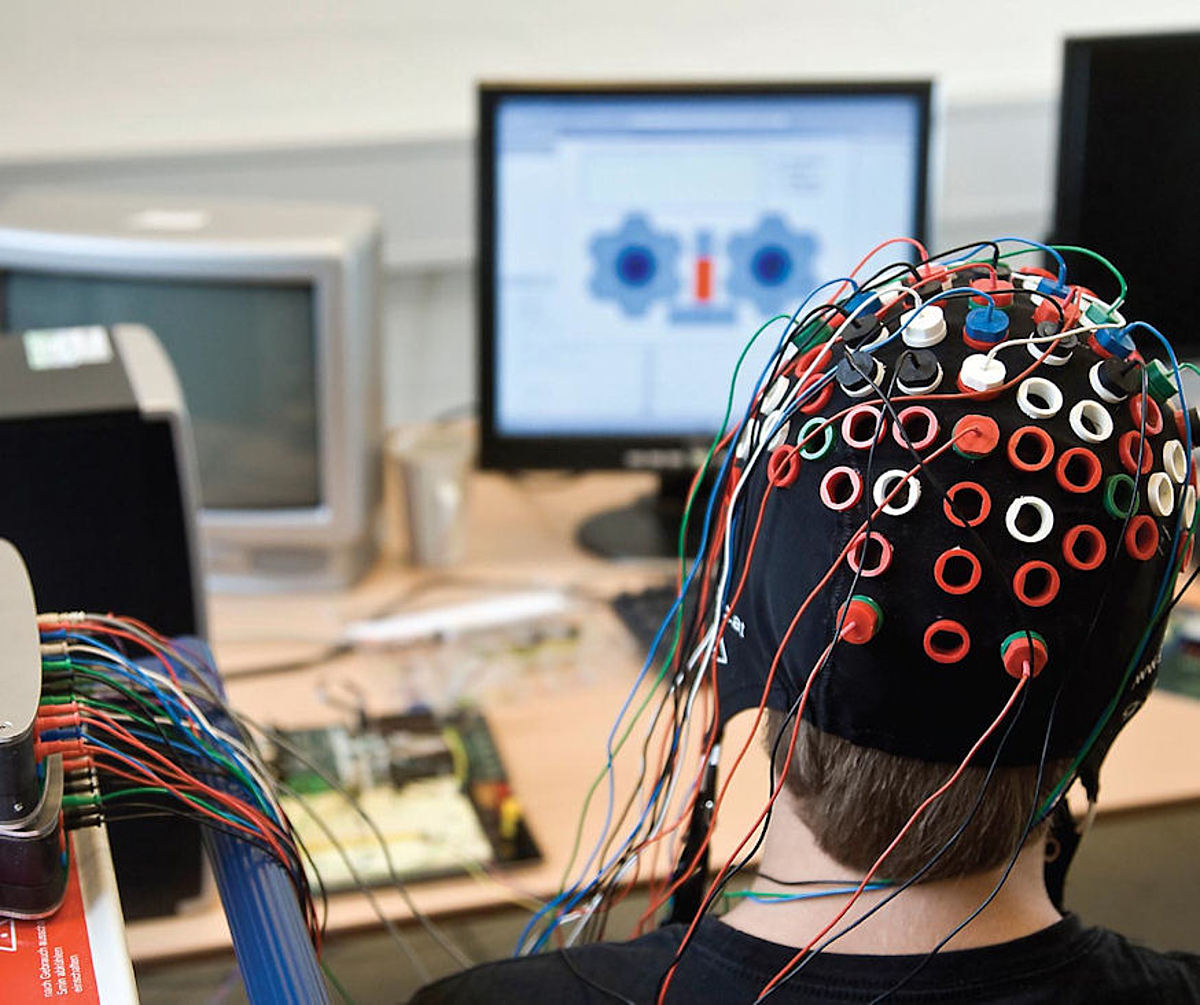
Brain-Computer Interfaces: A Double-Edged Sword
Brain-computer interfaces (BCIs) represent a revolutionary leap in neurotechnology, unlocking the potential for direct communication between the human brain and external devices. One of the forefront companies in this domain is Neuralink, spearheaded by Elon Musk, which has made headlines with its groundbreaking brain chip implants. These devices enable individuals, particularly those with disabilities, to regain control over their environment, such as moving a computer mouse with their thoughts or even communicating verbally through digital means. As the BCI technology landscape evolves, promises of greater autonomy and improved quality of life loom large, yet the landscape is filled with ethical concerns. The intersection of mind control and cutting-edge neurotechnology raises important questions about the future of personal freedom and mental privacy in a world increasingly influenced by artificial intelligence.
Often referred to as mind-machine interfaces, brain-to-computer connections, or neural interfaces, these innovative technologies pave the way for unprecedented interaction between human cognition and digital devices. These systems, commonly known as BCIs, facilitate a direct link, enabling users to operate computers and other machines solely through their thoughts. The emergence of neurotechnology has sparked a transformative dialogue around its potential to help individuals with severe physical limitations reclaim their active participation in daily life. However, this same technology raises alarms regarding the implications of behavioral manipulation and ethical boundaries concerning mental privacy. Engaging with these alternative terms allows for a deeper understanding of brain-computer interactions and their potential to shape our future interactions with technology.
Unpacking Brain-Computer Interfaces: The Future of Neurotechnology
Brain-computer interfaces (BCIs) represent a revolutionary leap in neurotechnology, providing new avenues for communication and control for individuals with physical disabilities. With devices like Neuralink’s brain chip implant, users have the potential to interact with computers and prosthetics solely through their thoughts. This innovation could transform the landscape of assistive technology, allowing paralyzed individuals to regain autonomy in their daily lives by controlling devices with mere intentions. As BCIs evolve, they could pave the way for widespread applications, fundamentally changing how we approach rehabilitation and disability management.
However, the rise of BCIs brings about ethical considerations that cannot be ignored. While these technologies promise a better quality of life for many, there are concerns regarding privacy, consent, and potential misuse. The lessons drawn from historical events, such as the CIA’s MKUltra program, highlight the risks of manipulating the human mind through advanced technologies. The dual-use nature of neurotechnology raises questions about who controls the technology and how it might be used, warranting stringent ethical frameworks to guide its development and implementation.
The Promise and Perils of BCI Technology in Healthcare
BCI technology has the potential to revolutionize healthcare by offering new solutions for patients with neurological conditions. With devices designed to decode brain signals and translate them into actions, patients suffering from conditions like ALS or spinal cord injuries can regain some semblance of control over their environment. This technology can enhance rehabilitation outcomes and improve quality of life, transforming the way medical practitioners perceive recovery and assistance. The market is projected to reach around $400 billion, indicating a booming interest in developing more sophisticated BCI technologies.
Nevertheless, the integration of BCI technology into healthcare also comes with significant caveats. For instance, the concerns raised about mental privacy and the potential for mind control should lead to rigorous discussions among policymakers, ethicists, and technologists. As BCIs become more mainstream, safeguards must be in place to protect vulnerable populations from exploitation or unwanted manipulation. Understanding the balance between innovation and ethical responsibility will be critical in shaping the future landscape of healthcare in the BCI era.
Neuralink: Pioneering Neurotechnology for Mind Control?
Neuralink, the brainchild of Elon Musk, stands at the forefront of neurotechnology, innovating with brain chip implants that enhance human-machine interaction. The company’s goal extends beyond medical applications; it aims to open pathways for enhanced cognitive abilities and even mind control in the future. By enabling direct communication between the brain and computers, Neuralink hopes to facilitate advancements that could change the way humans interact with technology forever. However, this leads to discussions about the ethical implications of such technologies, especially concerning the potential for mind control.
As Neuralink’s technology progresses, it raises critical questions surrounding autonomy and consent. The historical context of psychological manipulation during the Cold War serves as a reminder of the vulnerabilities attached to mind-controlling technologies. If BCIs, like those developed by Neuralink, evolve into tools for unwanted influence over individuals, societies must be vigilant in establishing ethical boundaries and safeguards. It is vital to ensure that technological advancements promote individual agency rather than undermine it.
Historical Parallels: BCI Technology and Mind Control
Drawing parallels between the development of BCIs and the historical context of mind control experiments illuminates the ethical complexities associated with neurotechnology. Just as researchers and government entities sought to control human behavior during the Cold War, contemporary advancements in technology could enable similar abuses if not rigorously monitored. The psychological and societal implications of BCIs are profound, as they introduce tools capable of not only aiding individuals but also potentially infringing upon their autonomy and mental privacy.
The chilling legacy of experiments like MKUltra highlights the necessity for cautious exploration of BCI technology. As researchers work on decoding thoughts and potentially manipulating behaviors through neurotechnology, stringent ethical guidelines must be established. The risks associated with such powerful tools must be addressed through a collaborative approach, involving ethicists, technologists, and society at large to ensure that lessons from the past inform our actions in the present and future.
The Market Potential for Brain-Computer Interfaces
The estimated market potential for brain-computer interfaces (BCIs) is staggering, projected to reach around $400 billion in the U.S. alone. This exponential growth reflects the increasing interest in neurotechnology solutions for a range of applications, from restoring mobility in paralyzed individuals to enhancing gaming experiences. As societal barriers to technology acceptance continue to diminish, BCIs could become integral in various fields, including healthcare, gaming, and accessibility, marking a new era of human-computer interaction.
However, harnessing this potential requires not only technological advancement but also a commitment to ethical considerations. The rapid development of BCI technology prompts questions about its accessibility, fairness in application, and the potential risks of misuse. Stakeholders must ensure that innovations are deployed in ways that prioritize public welfare and do not replicate historical abuses. The future of BCIs holds incredible promise, but it must be navigated with caution and integrity.
Ethical Challenges of Neurotechnology and Mind Control
As brain-computer interfaces (BCIs) become more sophisticated, significant ethical challenges emerge regarding their potential for mind control and behavior modification. The idea of utilizing neurotechnology for enhancing human capabilities raises questions about the true nature of free will and consent. With advances in neurotechnology, individuals could theoretically be manipulated without their full understanding or agreement, drawing unsettling comparisons to historical experiments in psychological manipulation that aimed to control individuals’ actions.
Addressing these ethical challenges is paramount as technology progresses. Researchers, ethicists, and policymakers must engage in open dialogues to outline clear standards around the use of BCIs. Safeguards should be created to prevent the potential misuse of neurotechnology and to protect individuals from breaches of mental privacy. By anticipating the ethical dilemmas posed by BCIs, society can better navigate the complex relationship between technology and personal autonomy.
BCI Technology and Its Role in Enhancing Communication
BCI technology holds exceptional promise for enhancing communication in individuals with severe disabilities. By translating brain signals into words or actions, BCIs could fundamentally alter how people with speech impairments convey their thoughts and feelings, creating richer interactions with their environments and loved ones. This technology could empower individuals who have lost the ability to speak due to injury or illness, providing them with a new voice and a means to express themselves.
The applications of BCIs in communication are varied and expansive. For example, research is already underway to develop systems that can reconstruct images from brain signals, inspiring new ways to communicate visually or through thoughts without traditional speech. As these technologies evolve, they could bridge communication gaps and foster inclusion for individuals previously marginalized by their disabilities. However, it is crucial to develop these technologies mindfully, ensuring that they are accessible and used ethically to promote empowerment rather than exploitation.
Challenges of Implementing BCI Technology in Society
While BCI technology promises numerous benefits, its implementation within society presents several challenges. One significant hurdle is the need for widespread understanding and acceptance of neurotechnology. Skepticism regarding the safety and ethical implications of brain chip implants could impede progress and adoption. Engaging the public in conversations about the technology’s potential and its ethical dimensions will be essential in fostering a supportive environment for BCI development.
Another challenge lies in addressing the disparities in access to BCI technology. As with any emerging technology, ensuring equal access across different socioeconomic groups will be crucial to prevent a digital divide. Policymakers must consider regulatory frameworks that encourage innovation while protecting vulnerable populations from exploitation and misuse, ensuring BCIs can enhance lives across the board, rather than widening existing inequalities.
Future Prospects of BCI Technology: Balancing Innovation with Ethics
The future of brain-computer interfaces (BCIs) is filled with potential, marked by ongoing innovation and discovery in neurotechnology. As researchers continue to explore the capabilities of BCIs, we may soon unlock new opportunities for enhancing human cognition, rehabilitation, and communication. The prospective developments in Neuralink’s technologies and other BCI initiatives could redefine our understanding of the brain’s capabilities and its interaction with machines, propelling society toward a more integrated future.
Yet, as we look ahead, it is vital to maintain a balance between innovation and ethical considerations. The seductive allure of mind control and behavioral modification through neurotechnology must be approached with caution. Establishing ethical guidelines and regulatory measures will ensure that the evolution of BCIs prioritizes the well-being and autonomy of individuals. By fostering a culture of accountability and transparency in BCI research, we can work towards harnessing the full potential of neurotechnology while safeguarding the rights and dignity of all individuals.
Frequently Asked Questions
What are brain-computer interfaces (BCIs) and what is their significance?
Brain-computer interfaces (BCIs) are innovative neurotechnology systems that enable direct communication between the human brain and external devices. They are significant because BCIs have the potential to revolutionize assistive technologies, allowing individuals with mobility impairments to control prosthetic devices, computers, and even translate thoughts into speech, thereby enhancing their quality of life and independence.
How does Neuralink’s brain chip implant work?
Neuralink’s brain chip implant functions by being surgically placed in the brain, where it monitors and translates neural signals into digital commands. This technology enables users, like the first recipient who was paralyzed, to control devices merely by thinking, demonstrating the profound capabilities of advanced BCIs and their promise for therapeutic applications in neurotechnology.
What are the potential ethical concerns associated with BCI technology?
The development of brain-computer interfaces raises several ethical concerns, including issues of mental privacy, consent, and the potential for misuse. As Lukas Meier’s paper suggests, the advancements in neurotechnology could lead to scenarios reminiscent of past mind control experiments, highlighting the importance of establishing clear regulations and ethical standards in BCI research and application.
Can BCI technology assist individuals with disabilities?
Yes, BCI technology is specifically designed to assist individuals with disabilities. It can enable them to control prosthetic limbs, communicate, and interact with computers through thought alone, making it a life-changing option for many suffering from spinal cord injuries, strokes, and other conditions that impair motor functions.
What are the possible future applications of neurotechnology in society?
Future applications of neurotechnology, particularly through brain-computer interfaces, may extend beyond medical uses to include enhancing cognitive capabilities, enabling brain-to-brain communication, and even changing behaviors. However, these advancements must be approached with caution to prevent ethical violations and ensure the well-being of individuals involved.
How might brain-computer interfaces impact mental health treatment?
Brain-computer interfaces could significantly impact mental health treatment by providing new ways to understand and manipulate brain activity associated with various mental illnesses. For example, BCI technology may enable researchers to develop targeted therapies for conditions like depression or anxiety, potentially leading to more effective treatment options.
What is the market potential for brain-computer interfaces?
The market potential for brain-computer interfaces is substantial, with estimates suggesting it could reach around $400 billion in the U.S. alone, driven by the increasing prevalence of conditions that BCIs can help treat, as well as the growing interest in neurotechnology innovations. This economic potential highlights the importance of continued investment and development in the field.
Could BCI technology lead to unintended behavioral changes?
Research has indicated that BCI technology, particularly through deep brain stimulation, could inadvertently cause behavioral changes in patients, as seen in some cases where individuals exhibited impulsive behaviors. This potential for unintended consequences emphasizes the need for thorough research and ethical considerations as BCI technology develops.
What safeguards should be considered in the development of BCI technology?
In developing BCI technology, safeguards should include strict regulatory frameworks to protect mental privacy, informed consent processes for participants in studies, and protocols to prevent misuse of the technology for mind control or manipulation. Establishing these safeguards is essential to ensure ethical standards and public trust in neurotechnology advancements.
What lessons can we learn from historical mind control experiments regarding BCIs?
The historical context of mind control experiments, such as those conducted during the Cold War, provides critical lessons about the potential for abuse in neurotechnology. It highlights the importance of ethical vigilance and the need to ensure that advancements in brain-computer interfaces are pursued responsibly, with respect for individual rights and autonomy.
| Date | Innovator | Technology | Potential Uses | Concerns | Historical Parallels |
|---|---|---|---|---|---|
| January 28, 2024 | Neuralink (Elon Musk) | Brain chip implant | Control prosthetics, operate computers, translate thoughts | Risk of misuse and mental privacy issues | MKUltra and Cold War mind control experiments |
| Unintended behavioral changes | Past attempts at psychological manipulation | ||||
| Informed consent issues | Potential for new types of coercion |
Summary
Brain-computer interfaces (BCIs) are at the forefront of technological advancements aimed at enhancing the quality of life for individuals with disabilities. While BCIs like those developed by Neuralink have demonstrated remarkable capabilities, such as enabling paralyzed individuals to control devices with their thoughts, they also pose significant ethical concerns. Historical instances of mind control experiments, particularly during the Cold War, remind us of the potential dangers of manipulating human cognition. As we continue to explore the boundaries of brain technology, it is essential to prioritize mental privacy, informed consent, and the potential societal impact, ensuring that innovations in BCIs do not repeat the dark mistakes of the past.



